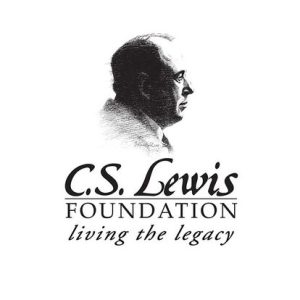
EPISODE SUMMARY:
So, in this episode, Paul and Courtney look at the question of environmentalism. More specifically, we’ll consider the role of faith and philosophy in shaping our conception of the world and our place in it. And we’ll do this by entering back into the Ransom Trilogy—this time by looking at the destruction of a quaint British village called Cure Hardy by the evil forces at the N.I.C.E.
EPISODE NOTES:
We see—on a small scale—the horrors of planetary destruction in chapter four of That Hideous Strength, a chapter Lewis title’s “The Liquidation of Anachronisms.” This is a fitting title for this chapter for we witness the destruction of all that is good and beautiful and solid and earth in the surrounding areas of Belbury.
Now what we want to notice is how our worldview affects what we see and what we value. We see in Mark—who is not totally unhuman yet—who still is somewhat sensitive to beauty—glimpses of sadness and loss. But in Cosser—who embodies the sanitized materialistic reductionistic imperialistic worldview of Belbury no longer has eyes to see any beauty in nature—everything is simple at his disposal to be used and manipulated. Mark hears beauty calling him to wake, to wake. He sees the beauty and his heart is stirred. But notice the vastly different experience of Cosser; Cosser has no eyes to see any of this.
The Connection between our view of the Environment and Nature and Christianity.
In 1967 Lynn White published “The Historical Roots of our Ecological Crisis.” In the essay she noted that Western Christianity played a key role, by placing humans over nature, in the anthropocentric degradation of nature. As she put it, “Christianity is the most anthropocentric religion the world has ever seen.” She further claimed that the solution to the environmental crisis lay not in science or technology but in religion, and in our ability to re-conceive our place in nature in a non-anthropocentric way. The problem is that anthropocentricism places “humans at the centre of meaning-making” which as a result “minimizes the inherent meaning and value in nature while at the same time disembedding humans from nature by placing them outside and above it.”
Alexander J. B. Hampton in his excellent essay “Christian Platonism, Nature and Environmental Crisis,” explore three inter-related questions about nature, we can begin to think about a theistic account of nature (better: creation) and how we ought to steward it.
Hampton argues that a way out of the environmental crisis will include a “fundamental shift in the way humans understand nature and their place in it.” The problem, according to Hampton, is the now dominant anthropocentric conception of nature such that man is the center of nature and that our task is to dominate, exploit, and master nature. Christianity offers a radically non-anthropocentric alternative. In particular, Hampton will offer a Christian Platonic or participatory account of nature that helps us see all things in God and all things from God.
To find our way, Hampton addresses three related questions:
First, there is the question of meaning: What is the meaning of nature? According to Hampton, from an anthropocentric standpoint, “humans confer meaning upon nature.” Thus a tree or bush or mountain takes on whatever meaning we ascribe to it: we might dub it beautiful if pleasant to apprehend, profitable if capable of harvesting or exploiting (say as a ski destination or hiking destination), or something else. The problem with this view is that it inevitably leads to the commoditization of everything: everything becomes valuable in terms of commercial value. On the other hand, a Christian (Platonic) account of nature grounds the meaning of a tree or mountain or shrub in a divine idea. The tree or mountain or shrub participates in the divine idea of a tree or mountain or shrub. On this view, there is a tight connection between the natural order and the sacred order precisely because the natural order participates in the sacred order. All is from God and created by God in virtue of God’s ideas about creaturely things. Thus, there is meaning in the world not because we dub things as meaningful, but because God creates according to a divine plan.
Second, Hampton asks, what is the value of nature? This question is closely related to the first question. Given the pervasive naturalism and disenchantment of our age, it is widely thought that there is nothing of intrinsic value in the world. As Hampton states, “Naturalism largely understands nature as a resource whose value is determined by humans based on a range of criteria from raw material, to food, to recreation, or even carbon credit.” On the other hand, a Christian participatory account of nature grounds the value of creatures in God. Creatures are valuable because they are created by God and for God and because they image the divine ideas. A problem here is that it seems that creatures only enjoy a kind of derivative value in virtue of participating in the divine: creatures participate in divine goodness and are good only in that they partake in God’s goodness. Still, it is possible, on this account to argue that creatures have intrinsic value.
Finally, Hampton asks, how should we know nature? On the anthropocentric model, “to know nature is to know the symbols, systems and coordinates that we impose upon it.” So, as Hampton notes, we assign names to animals such as Scaptia beyonceae, for a horsefly in Australia, named after the American pop singer Beyonce, or we locate places on earth in virtue of geographical coordinates of latitude and longitude, or we assign (often in poetry) certain emotions to animals (such as melancholy to the nightingale). On a Christian account of nature, we come to know nature, on the other hand, by cultivating “reflective awareness.” Things in nature are not objects to be exploited, rather they are objects of veneration, to be seen and appreciated as creatures created and lovingly sustained by God. As Hampton notes, “as objects of veneration, they contain a kind of inexhaustibility through their participation in divine ideas.” Instead of exploitation, we converse with and enjoy a kind of communion of being with nature. For we are all part of the divine drama, and all creatures great and small take up their place and offer praise in their own way to the God behind it all.
The point: it is no accident that the “greatest period of anthropogenic environmental destruction the planet has ever witnessed” coincide with the naturalistic and anthropocentric view of nature. If we are truly going to make any progress in the environmental crisis, the first step will be to adopt a non-anthropocentric conception of nature. And this is exactly what the Christian worldview offers: a vision of nature as sacred, as a gift, as a sign and sacrament of the divine to be valued, stewarded, and enjoyed in creaturely response.
RESOURCES MENTIONED:
- Wendell Berry, “How to be a Poet,” Poetry, January (2001)
- Alexander J. B. Hampton, “Christian Platonism, Nature and Environmental Crisis,” in Christian Platonism: A History
- Hildegard of Bingen, The Book of Divine Works
- S. Lewis, That Hideous Strength
- Novalis, Historische-Kritische Ausgabe, vol. 3
- Lynn White Jr., “The Historical Roots of Our Ecological Crisis,” Science 155, no. 3767 (1967)





